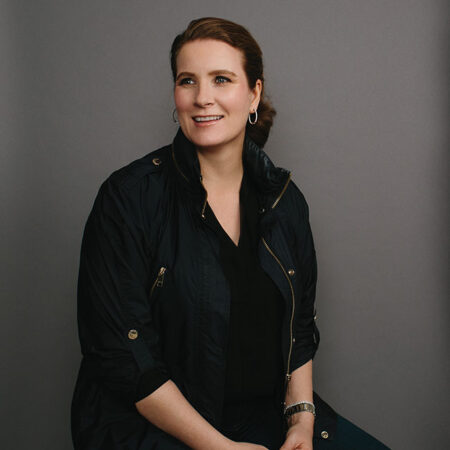Vancouver-born Margaret Brodie, CEO of Rubicon Organics, recalls scrubbing the farmhouse on site of their Delta, B.C. property, two kilometers from the Pacific Ocean, prior to a Health Canada visit. The property purchased, previously a pepper farm, is now home to a global brand leader in organic cannabis. “I’m a big believer in living where your business is,” says Brodie, noting the nearby wildlife and blueberry farms.
After receiving their license in 2019, Rubicon Organics launched the Simply Bare brand, unaware of the uphill battle that Covid – the stressors and uncertainties – would bring. “It’s been one foot in front of the other,” says Brodie, “do something, do it well, and focus in your lane.”
Their three flagship bands Simply Bare Organic, 1964 Supply Co. and Wildflower helmed by the VP of marketing and new business, Mathieu Aubin, in conjunction with an all-female c-suite, satisfy consumer needs by focusing on premium cannabis flower certified by the Fraser Valley Organic Producers Association (FVOPA) along with vapes, edibles and topicals under their brands.
Over the past year, the Rubicon team has invested in building their intellectual property database, with data collection from their scaled living soil operation, ensuring they are global leaders in premium organic cultivator, “using the power of the sun,” says Brodie.
Advertisement
However, the CEO describes organic as a feature rather than a benefit. “So the weed has to be great,” she says. “Our view is that the organic living soil makes the terpenes and flavour experiences better, but is has to be premium cannabis, not just organic, to sell at premium prices.” This speaks to the company’s reputation with consistent quality products. Otherwise, they don’t go to market.
At times, “we’ve had to make really difficult decisions,” says Aubin. “We have not put some crops out there; we’ve had to cancel POs. We’ve had moments of taking financial hits in order to never compromise on quality standards and our brand promises.”
What’s most important?
Earlier this year, Rubicon Organics launched a line of full spectrum extract vapes. “That was a big deal for us,” says Brodie. “And we sat around the table and said, ‘what is the most important thing? Is it the lowest cost input or is it putting the best quality product out there to show people how good the product can be from great flower inputs and capture consumer love and loyalty?’ That’s been our approach.”
Having a financially prudent team also lends itself to a stronger company as people have better job security. “I don’t have an executive assistant,” she says. They spend the extra time, do the work themselves, and ensure that their resources stay focused on the business. “We like to say we’re a business that’s in cannabis, not a cannabis business.” The data-driven CPG company stays true to principles like taking time and being best in market rather than first to market.
Advertisement
Proudly a cannabis company, Brodie explores the marriage of legality and respecting the legacy. “You know,” she says, “my first day with [founder] Jesse McConnell, I said something about the black market, and he just turned to me and said, ‘let’s be clear on what got us here.’ It was such a powerful thing for me.” To work at Rubicon, employees do not need to consume cannabis, but they do need to love and respect the standard of work being done there.
Rubicon Organics has three flagship brands: Simply Bare Organic, 1964 Supply Co. and Wildflower. They also provide the cannabis market with product offerings such as full spectrum resin vapes, edibles and topicals under their brands.
House of brands
Simply Bare and 1964 Supply (the year Professor Mechoulam discovered the THC molecule, and the Beatles first came to North America) make up their strong flower brands.
Simply Bare, with its delightful new Fruit Loopz flower, focuses on new genetics in a more premium offering, while 1964 is their “legacy recruiter,” bringing known legacy genetic into the legal market. “We strongly believe genetics is the way of the future in the cannabis business,” says Aubin. “You need to have strong, consistent genetics. An outstanding genetics library is critical to success.”
Advertisement
Brodie frequents the facility herself, and once a week, the leadership positions and the quality team also take a “crop walk,” evaluating the plants as well as safety hazards or maintenance risks. “We make sure everyone’s on the same page because we’re an agriculture business, and we grow rainbow crops.”
From a risk perspective, the fluctuating elements’ impact on the crop growing multiple strains in a single area requires a keen eye and a cohesive management team. The unusual rainbow cropping greenhouse style, stacked with living soil cultivation, signals highly unique IP in a successfully institutionalized and scaled operation. “It means that we’ve got the strength in business overall, and we’re creating scaled premium and organic IP in Canada that we’re really proud of.”
Growing for people who love cannabis, Rubicon opted for full spectrum extract resin vapes in order to illicit a “true flower experience.” All of their main cultivars ¬ Comatose, Blue Dream, Gelato #41 – are all now available in 510 vape format; “the taste is very similar to the flower experience,” says Aubin.
Growing with CPG portfolio management
Aside from keeping the company in the best possible financial position, by refinancing debt that will prepare the business for the upcoming years, Brodie and her team look to expand their enterprise in conjunction with other excellent operators.

Margaret Brodie has worked in the cannabis industry for nine years, having received numerous awards for her talent & leadership skills.
Brand expansion will occur with “great growers, great contract manufacturers, and great partnerships,” she says. “We want to actually help build our partners’ businesses as well so that we’re building a great industry in Canada.” From an investor and company management side, it’s called “the three-legged stool,” including suppliers, customers and then franchises – a concept their board of directors understands well.
Rubicon is close with other producers akin to their mission statement as it is their collective purpose to grow the premium segment of the market. “The more premium growers succeed, the bigger that piece of the pie will become. The industry is still too young for us to be real competitors,” says Aubin, citing the industry’s sustainability and longevity incentive.
Brodie is also a board member of the Cannabis Council of Canada (C3), and works closely with other neighbouring organizations in cannabis, investing again in the cannabis community, and “having impact that is authentic to our values,” without, of course, confusing kindness for weakness.
Having spent nine years in the industry, Brodie knows the struggle, “and some days I think I should have taken the job with the pretty office looking out over the water,” she says. “You know, we started out at my kitchen table, and now we have 185 full-time employees and 75 contractors that come through the facility almost daily.” Brodie thrives by returning economic development to the city and the country at large, while helping to grow the global industry.
The international advantage in Canada is not lost. Without limiting Canadian cultivation licenses like they do in Europe, it is, in a sense, fair game – fierce competition. And the result “forces the good businesses to be better much more quickly,” she says, “and that’s one thing Canada hasn’t realized: what a good industry we’re going to end up with.”
Regulatory optimism
While the encouragement felt post-Gazette recommendations was reassuring, the issue of excise tax in Canada continues to be the number one inhibitor for cannabis product businesses. “Even though we pay our excise taxes, if we could drop the price for the consumer, we could actually sell more of our premium flower,” says Brodie. The sale of inventory at low costs as a result of paying over 40 per cent in taxes was apparent last year, to the market’s detriment. And while Canada may be on the rebound, still in this sector, “our biggest competition is the grocery store bill,” she says, not necessarily the other cannabis companies.
On top of excise, the LP is also paying an excessive 2.3 per cent fee to Health Canada on their top line revenue. Another key challenge in the cannabis industry is the disparity in regulations compared to other sectors, where more harmful products are not subject to the same strict oversight.
“And look,” says Brodie, “I’m a chartered accountant; I’m an officer of the company. But we’re playing the long game. We’ll compete in any market, whatever rules are put in front of us, and we’ll play fair.”

